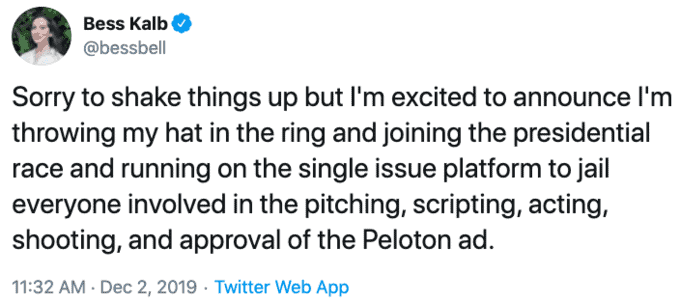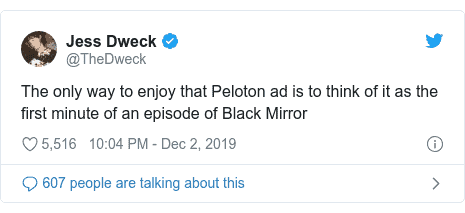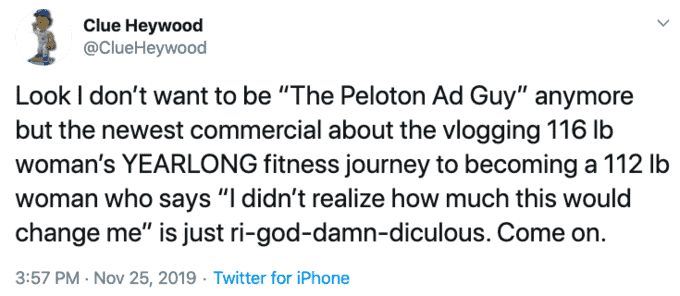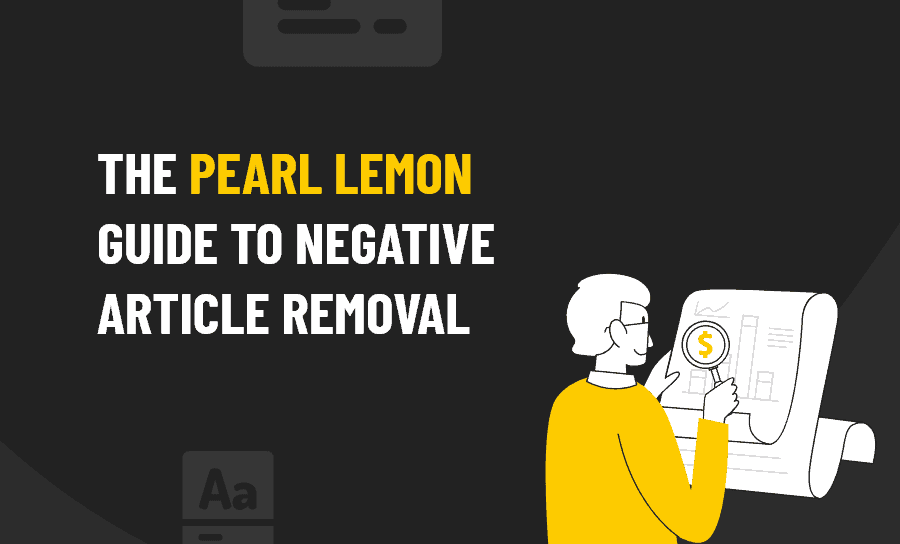You may have heard or read about online reputation management recently. However, with all the other things you have to worry about, you may not have given too much thought to actually worrying about it as it applies to you. That may be a big mistake as increasing your online reputation is becoming more and more important, from both a personal and professional point of view. And something as simple as one negative article can ruin it. But is negative article removal even possible?
Your online reputation – and that of your business – is made up of a lot more than just your website and/or your blog. It can consist of every mention made about you online, both by you yourself in the form of comments on other websites or on social networks, articles that may have been written about you on or offline (most newspapers and magazines have online versions of their publications these days) and comments that others may have made.
If you do not find a way to manage your online reputation effectively what you don’t know can really hurt you. It’s not just all about bad reviews on sites like Yelp! or inappropriate comments on social networks either. Some business owners have horror stories to tell about discovering negative articles, nasty social media content and worse posted in their name that damaged their reputation that was actually the work of someone else. Some of this stuff was so alarming that we knew we had to get into negative article removal.
One black hat SEO technique that has been around for quite some time is posting a comment, blog post or article that says something negative about a company – something that is often untrue – and then deliberately optimizing it so that it ranks higher in the SERPs than positive content about the company. If you think that sounds a bit far-fetched think again, it happens to companies – and individuals – all the time these days.
How important might that information be? The results of a survey of 300 consumers from the Society of New Communications Research found that “74% (of consumers) choose companies/brands based on others’ customer care experiences shared online.” These figures only confirm what a lot of businesses have already had to find out the hard way – that what consumers can find out about your company online will be a huge factor in their decision whether or not to use or purchase goods or services from you.
When you are trying to bury and push down a negative Google result, branding basics just won’t cut it. You need to give your campaign a little extra juice when attempting to bury a well-optimized negative article or bad search result with a lot of domain authority.
Bad Search Results Can Happen to Good People
While the internet and social media have created an accessible platform for anyone with an internet connection, there is a downside. All it takes is one bad blog post or status update from an angry ex, disgruntled former client, employee – OR EVEN YOU to ruin your career. Even a questionable photo can wreck an otherwise pristine reputation. Bad results happen to good people all the time. So what can you do to fix your online reputation if this happens to you?
Option 1. Get the negative search result taken down.
If you need to bury negative Google search results, in some cases, you can get the negative search result and/or the negative article/post/review taken down directly. Remember, this won’t work in every case, but in some, it is step one to building a more effective personal or company brand online. There can be serious downsides to removal requests though, so ask yourself these questions first:
Did you post the content?
Does this negative search result stem from a blog post, tweet, status update, etc. that you posted? Or does it come from an account that you control or have access to? If so, DELETE IT! You don’t need to bury Google results if you control them. Remove everything associated with this content that you possibly can. While there is still a chance that content could appear elsewhere (screenshots/cached searches, uploaded on other sites or profiles, etc.), start by removing anything you can.
Did your friend post this content?
Did your friend post something about you that could hurt your professional, academic or personal opportunities? If so, just ask them to take it down. As mentioned above, this could still resurface elsewhere, but this is a great first step. And try to push for full removal. For example, if your friend just de-tags you from something, your image is still associated with whatever is potentially damaging.
Did an acquaintance or someone you’re on good terms with post this? Feel free to reach out to this person as you would a friend. Just be polite and explain the situation logically. If someone isn’t focused on their own personal brand, (or has different boundaries than you do), they may be oblivious to how this content can negatively affect your personal or business reputation.
Would The “Right to be Forgotten” apply to this scenario?
If you live in the E.U.or Argentina, check if this content falls within the standards of removal based on Google’s Right to be Forgotten.
Does this content fit Google’s standards for Takedown Requests?
If you’re based in the US, look up Google’s legal causes for removal, and follow the steps necessary for submission.
While a “YES” to the questions above bodes well if you want to remove or bury negative Google results, keep in mind, you’re not necessarily in the clear. The search result is still archived.
If you are lucky enough to have your content removed through emailing the webmaster directly, filling out a request form or through legal channels, it’s still likely that the negative search result will be archived somewhere and continue to show up when your name is searched.
There are a few more questions you still should ask yourself in your takedown request. Unfortunately, if you answer “YES” to any of the questions below – you should focus your energy elsewhere while attempting to improve your personal brand.
Is the owner of this content anonymous or spiteful?
It would be great if you could just email someone and they would immediately remove this negative content, no questions asked. That’s obviously the ideal situation, and while it is possible to get content removed, there are some known risks and issues associated with taking this route.
If you’re dealing with an anonymous or spiteful troll, then proceed with caution. Asking this kind of person to remove the offending may not go as planned. There is always the chance that the owner not only refuses to take the content down… but could make the situation worse for you.
Depending on the particular circumstances regarding your negative results, if you are dealing with somebody who has it in for you, there is always the chance that this person will choose to make it worse for you by becoming even more active and retaliate against you online.
We have seen this happen, so it’s a smart idea to take a moment and analyze the situation. Sometimes it’s better left alone when it comes to contacting the site owner and spending your time on other strategies to bury negative Google results.
Is the owner of this content a government website or news outlet?
If you’re dealing with a government site, it’s unlikely that you’ll be able to get documents that are of public record removed. However, you should feel free to do a bit of digging on the government website (or by calling them) to see if there are any processes in place to maintain your privacy.
When it comes to dealing with a news outlet – if something is factually inaccurate, you can email them to write a retraction or correction. However, that may just give even more authority to a link or story that already looks damaging based on the title or URL.
Does this negative content fall outside of the realm of the Right to Be Forgotten (EU) or Google’s takedown policy (US)?
If so, it’s unlikely you can have the search engine de-index this result for your name. This means you will have to push down the negative Google result if you want it to stop being an issue.
Option 2. Pay for a service that claims to “instantly fix your negative search results”.
If the owner of the offending content refuses to take it down, you may be tempted to turn to paid negative article removal services. Unfortunately, this may be a very expensive and arduous path to possible removal. Often times, the negotiations associated with this process can take as long as working to bury negative Google results directly. There are a number of reasons for this, but the two biggest ones are time and negotiation.
Site owners tend to be protective of their content and have spent their own time or money when creating it. This is why they tend to not be very receptive to the idea of removing it. Also, most often, the contact details you can find on a site are not checked frequently, which means the time you have to spend simply waiting to hear back from the owner can be very long.
There are a number of businesses and “consultants” popping up all over the place who claim that they can bury negative Google results and fix your online presence practically overnight. However, if this person or company was really focusing on building your brand with long-term results in mind, then they wouldn’t be making a promise that they can’t necessarily keep. The fact of the matter is, nobody can completely control Google results.
If someone says that they can fix your online reputation overnight, RUN! These are people who will employ some of those aforementioned black hat SEO tactics, which will quite possibly work for a few weeks, and then disappear (with your money of course).
As these shady tactics are only short term fixes the bad stuff will reemerge, but they’ll be long gone. Your attempt to push down the negative search results will fail, and after a short period of time, they will resurface. This means you will be right back where you started – but with less money.
Search engines have been battling deceptive firms that use black hat tactics for years, and are now so good at flagging the activity that it often backfires very quickly, and may even end up bringing the negative Google result back into prominence.
Option 3. Run a paid social media campaign.
This approach should be handled with care and used only in very specific cases. If you have already invested time in building out your online presence, and continue to be consistently active on these sites, you might see positive changes over time – changes that can actually last.
However, if you need a little boost with a particular objective in mind – like getting more customers, increasing brand awareness or getting specific kinds of social media engagement, then perhaps you should consider a paid social media campaign.
This does not bury negative Google results directly, but if you do it the right way, it can positively affect your campaign indirectly. This is an opportunity to create some traction for a specific goal that you can build on, and send additional signals to search engines that will never hurt your efforts.
The idea behind a paid social media campaign should be to focus on the positive content that you are creating, your business or services so that there will be more activity geared toward the properties that you control as opposed to the negative result.
Think of it this way; if more people see your content, then there’s a greater chance that you’ll get additional links (which directly help rankings) and organic social media traction (which correlates with ranking increases).
Option 4. Build and optimize the positive content you want people to find, burying your negative Google results much deeper on the page.
The best way to combat negative results is to suppress them with positive content. Instead of spending time and money on tactics that won’t lead to any long-term solutions, we recommend that you consistently create high-quality content that is search engine friendly.
Additionally, regularly engage on various social media sites where you build and connect with relevant communities. This creates a network of relevant, accurate content and web properties that will start rising higher in Google when people search your name. Not only will this help bury negative Google results, but it will protect you from any future negative search results appearing in the future.
Understanding how to remove negative articles from Google, or ay least to minimize their impact, is actually fairly straightforward. The real trick is being patient and consistent. This is where most people flounder and get desperate for a quick-fix.
The Value of Your Online Reputation
If what we have just detailed all sounds like a lot of work, it can be. If you are not sure how to go about executing an effective negative article removal campaign that’s OK, we will be sharing some of our secrets soon. But first, we wanted to address something that people sometimes fail to get the magnitude of; the value and importance of your online reputation, whether it’s your personal, professional reputation or that of your business.
When it comes to your business, its reputation far more valuable than you might think. In this Business World article one banker writes ” In the bank’s credit evaluation for granting loans, aside from Capacity, Capital, Collateral, and recently Conditions which include matters like industry structure, technology change, market distribution, and regulatory factors, there is also “Character.” The fifth “C” focuses on a borrower’s reputation in terms of behavior. Does he pay the caterer on time? Does he have extravagant and frequent vacations? Do his employees and suppliers complain about him?”
He goes on to admit that in this online dominated world that fifth C might not always be accurate but then states that banks still take it into account anyway.
So, in other words, if someone has complained about you, wrongly in a review, for, for example, not paying them on time, technically that review might be a bar to you getting the funding you need to grow your business. If you could not get that review removed – which the chances are that you couldn’t – you would at least have to counter it with reviews that state the opposite and then scour the Internet for any other reviews that the same person might have left.
It’s not just banks that will judge you, consumers will too. A great example of this just happened a few weeks ago in the States. A high-end home gym equipment company, Peloton, created a Christmas ad. As all smart companies do. But someone must have fallen asleep at the wheel at their ad agency, as the commercial was more than a little sexist, at a time when that is not what any company should be perceived as.
In case you missed it somehow, here’s the ad in question:
Fairly harmless? Peloton thought so. Until social media waded in. With accusations of sexism and being generally creepy, along with comparisons to Black Mirror, it was less than 24 hours before almost everyone in the States who uses the Internet had heard about the ad.



At least it got the company some extra publicity, right? Well, kind of. Remember those serious financial people and their opinions on reputation? They acted, and Peloton’s stock plunged 15% in three days, wiping out more than $1.5 billion from its market capitalization. Not a good thing when you are trying to sell a fitness bike that costs more than $2,500 (already a harder sell) at Christmas.
In light of all of that, one stock market expert summed up to Forbes how one thirty-second ad could do so much damage so quickly. “It can cause companies like Peloton to exhibit a lot more stock price volatility when there are events that can cause people’s views to move up or down,” he said. “I think that is exactly what we see right now.”
Will the company recover? Possibly, but only if they act to rebuild consumer trust and replace all those negative opinions with positive ones. It will be interesting to see how they do in 2020.
Our point here is that your reputation is not only valuable; its practically priceless. In that same Business World article we cited earlier, the author also explains that banks will look into the reputation of the principals as well. So, any ‘bad press’ about you, as the head of your company, or any of the major players involved, will harm your company’s reputation as much as your own.
People are talking about your business online. Where are they talking? All the following in all likelihood:
Personal Social Networks
People share a great deal of personal information across their various social networks, even if it can’t all be seen by everyone. One of the things that social media users do share about more than you might think is their experience with the businesses they interact with.
Professional Social Networks
LinkedIn and other professional social networks are also places people are likely to share their opinions about various businesses.
Review Sites
Yes, no doubt you are more than aware of the fact that Yelp! exists but that is far from the only major site where reviews of your business and products are likely to appear.
For example, Google has its own Google Review system, and any Google reviews of your business will often be displayed right alongside your basic business listing in search engine results for all to see. Oh, and let’s not forget there is an increasingly prominent review feature on Facebook as well, a feature that an increasing number of people are making use of.
And that is just the tip of the iceberg. There are dozens of more review sites that you and/or your company might be mentioned in, and most people have no clue how to monitor them all.
In Blogs and Forums
Across the Internet, people maintain hundreds of thousands of blogs, vlogs (video blogs) and forums. And here too you will find all kinds of comments, opinions and personal observations about all kinds of businesses, including retail businesses like yours.
The Impact of Internet Mentions
You cannot control what people say about you online. And the chances are that, however hard you try to please on a daily basis, there will always be at least one or two negatives mixed in with the positives. Some opinions may even be, in your eyes, so misguided or unfair that you are tempted to ignore them. However, it should be noted that, especially in the case of online reviews, what is said can have a serious impact on your business.
According to a Pew Research study, 68% of consumers trust opinions posted online, and a whopping 88% of consumers trust online reviews as much as personal recommendations. Yep, you read it right. Most people will lend as much weight to what a stranger says about a business as they do to what their friends and family might have to say. And so even if you know that a review is unfair, the chances are good that someone, somewhere is taking it into serious consideration when deciding whether to do business with you.
As we mentioned, you have no control over what someone chooses to post online about your business. But you can listen to what people are saying and take steps to highlight the positives and minimize the impact of the negatives. There are tools that can be set in place that will allow you to monitor the Internet chatter about your business and others that will allow you to address it in a positive, professional manner. But it has to be a consistent effort. “Checking your rep” once every few months is not enough, the damage may already have been done in the interim, and you’ll not even be aware of it.
Then, when and if you do discover negative articles, negative content, bad reviews or other (easily searchable) content exists that could damage your company’s reputation or growth you will have to go through how you are going to cope with, which involves the long process we detailed earlier. Or, you could hire someone to do it for you—someone like us.
Negative Article Removal – The Pearl Lemon Process
Pearl Lemon has been offering negative article removal services to a select group of clients for a while now, as a part of our Reputation Management Services offering. While we don’t quite want to give everything away, we thought offering an insight into how we do things would help you understand how we achieve the great results we do.
How We Push Negative Search Results Down
Step 1: We create and optimise public profiles on these platforms:
Gmail, About.me, Amazon, Angel.co, Blogger, Buffer, Gravatar, Foursquare, Followus, Pinterest, Sites.Google, Trello, Tumblr, Wordpres, YouTube Angelfire, Behance, Bravesite, Bookmax, BuzzFeed, Dailymotion, Digg, Diigo, Disqus, Edublogs.org, Issuu, Livejournal, Medium, minds.com, MySpace, Pen, Quora, Reddit, Scoop.it, Slideshare, Soup, Strikingly, StumbleUpon, Weebly, Wikidot, Wiki.answers.com, Yola. 4shared.com, Able2know.org, All4webs.com, Answers.informer.com, apsense.com, ask.fm, authorstream, Blurb.com, Bokmarkee, Contactup.io, Deviantart, Evernote, feedbooks.com, forums.adobe, Getpocket, giphy.com, Github, Growthhackers.com, Imgur, instructables.com, intensedebate.com, jigsy, Jimdo, Justpaste.it, Kickstarter, Magcloud, myopportunity.com, Onenote, paper.li, Pastebin.com, Plurk, Referralkey, Remote.com, Scoop.it, Scribd, Skillshare, Simplesite.com, slashdot.org, Start.me, Tinychat.com, Viki, Wattpad.
Yes, it’s a lot. But negative article burial and negative results burial needs to be permanent and effective, so the extra work is called for. All of these sites are places that it is easy for people to post negative articles, reviews and opinions about a company or a person. You might not even know they exist, because some of these sites are niche and in some cases, even a bit obscure. But Google bots will find them, and Google will index them. By creating profiles on these sites that are controlled not only can we work on any negatives but start building a great link profile that will enhance your E.A.T reputation.
E.A.T stands for Expertise, Authority and Trust. Google is taking more and more notice of these metrics. E.A.T plays a large part in Google’s Search Quality Evaluator Guidelines. Their what, we hear some of you ask—their Search Quality Evaluator Guidelines. Most people do not know that in addition to their millions of bots, Google does employ actual humans – actual humans from all over the world -to evaluate websites, content and the SERPs themselves. Their opinions (Google says) don’t affect the search results directly, but their judgments are used to improve Google’s search algorithm, which does.
In early 2019 Google updated those guidelines for the first time in a year. They directed search evaluators to care more about who’s writing content, what they can back their words up with, what expertise they can bring to the table that will make them worth listening to or doing business with. So the more places you can demonstrate how good you are, the better.
Step 2: We build an interlinking strategy between all the profiles we create:
Another of the ways that Google determines a site’s rank in search results is by analyzing how many times other sites link to it. You can get your content to rise by linking it to itself. For example, create a Twitter account, connect that to your Formspring account, connect both of those to your Facebook page, and link to all of them on your Blogger page. Of course, the more you use your accounts and interact with other people, the more likely they are to link to your content, which drives your results even higher.
Step 3: Take back negative keywords
If a search for your name is generally positive, but including a particular keyword brings up negative or unwanted results, we try to reclaim that term. Let’s say that a search for “John Doe” is positive, but “John Doe”+ “State College” brings up negative results. John Doe should start including the phrase “State College” in his positive content creation in order to associate it with his good reputation.
The best way to take back negative keywords that will lead to that negative article or post is to create great content that Google will love and index above the bad stuff. And as we do this, it serves two purposes. The first is the initial main objective; negative article burial or bad review suppression. The second is that in creating great content, your brand image and reputation will be elevated. Basically, by the time we’ve finished, those bank managers will love you.
The one thing we don’t do in all this is black hat SEO. As we mentioned, it’s a bad, quick fix that does not last. We have a reputation to uphold too.
Need help burying a negative article? Not even sure what’s out there that could be adversely affecting your brand or personal reputation adversely? Contact us, and together we can find out.








